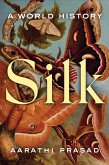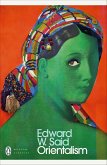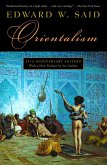US history goes back less than four centuries. The path that European civilisation took to reach modernity took thousands of years and seas of bloodshed. For Americans, it cost much less and took less time. The peculiarities of socio-historical development have left a mark on the specificity of America's development and culture. They have given special forms and features, formed vectors different from European ones, determined the special importance of discourse in the processes of cultural self-identification. The American people have an original culture, capable of generating powerful multidirectional "cultural impulses". But what are the origins of this culture, how and under what factors were they formed? What can be said about the peculiarities and main directions of cultural dynamics of the American civilization? Are there any specific forms and means that have been especially developed in the processes of America's cultural self-identification? The outlined range of questions constitutes the problematic of the work. The author does not give an exhaustive answer to each of them, but outlines the vectors of solutions for the most important ones. The book is addressed to culturologists, philosophers, philologists, Americanists, historians.
US history goes back less than four centuries. The path that European civilisation took to reach modernity took thousands of years and seas of bloodshed. For Americans, it cost much less and took less time. The peculiarities of socio-historical development have left a mark on the specificity of America's development and culture. They have given special forms and features, formed vectors different from European ones, determined the special importance of discourse in the processes of cultural self-identification. The American people have an original culture, capable of generating powerful multidirectional "cultural impulses". But what are the origins of this culture, how and under what factors were they formed? What can be said about the peculiarities and main directions of cultural dynamics of the American civilization? Are there any specific forms and means that have been especially developed in the processes of America's cultural self-identification? The outlined range of questions constitutes the problematic of the work. The author does not give an exhaustive answer to each of them, but outlines the vectors of solutions for the most important ones. The book is addressed to culturologists, philosophers, philologists, Americanists, historians.
US history goes back less than four centuries. The path that European civilisation took to reach modernity took thousands of years and seas of bloodshed. For Americans, it cost much less and took less time. The peculiarities of socio-historical development have left a mark on the specificity of America's development and culture. They have given special forms and features, formed vectors different from European ones, determined the special importance of discourse in the processes of cultural self-identification. The American people have an original culture, capable of generating powerful multidirectional "cultural impulses". But what are the origins of this culture, how and under what factors were they formed? What can be said about the peculiarities and main directions of cultural dynamics of the American civilization? Are there any specific forms and means that have been especially developed in the processes of America's cultural self-identification? The outlined range of questions constitutes the problematic of the work. The author does not give an exhaustive answer to each of them, but outlines the vectors of solutions for the most important ones. The book is addressed to culturologists, philosophers, philologists, Americanists, historians.








